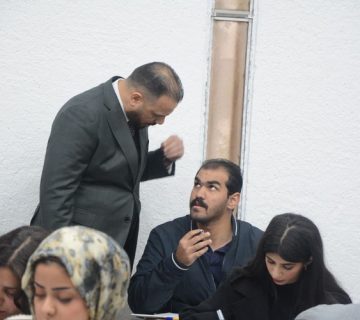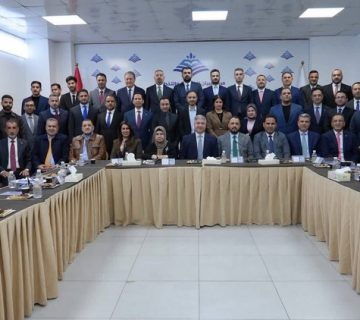The College of Political Science at the University of Baghdad held a lecture for postgraduate students on publishing scientific research in reputable journals under the title “Transformations in the International Polarity System: Studying the Future of the Nonpolar System.”
Professor Dr. Muthanna Ali Al-Mahdawi pointed out during his lecture that among the paradoxes of the international polarity system are the four models of this system: multipolarity, bipolarity, unipolarity, and nonpolarity, as they were achieved in the international system in a sequential manner. The international system has been multipolar since its recent formation after the Treaty of Westphalia in 1648 until the end of World War II in 1945, then bipolarity prevailed until the end of the Cold War in 1991, after which the United States dominated the international system in a manner similar to the unipolar system, although there was controversy about achieving unipolarity with the rest of the global institution of the international system itself, that is, the United Nations, explaining that the importance of the impact of the non-polar system on foreign policy is embodied in the nature of wars in this system. It is characterized by a set of characteristics, including that international wars in the non-polar system may be an extension of internal conflicts, and that they may be among countries and non-official actors. These wars may also be waged by proxy.

Comments are disabled.









